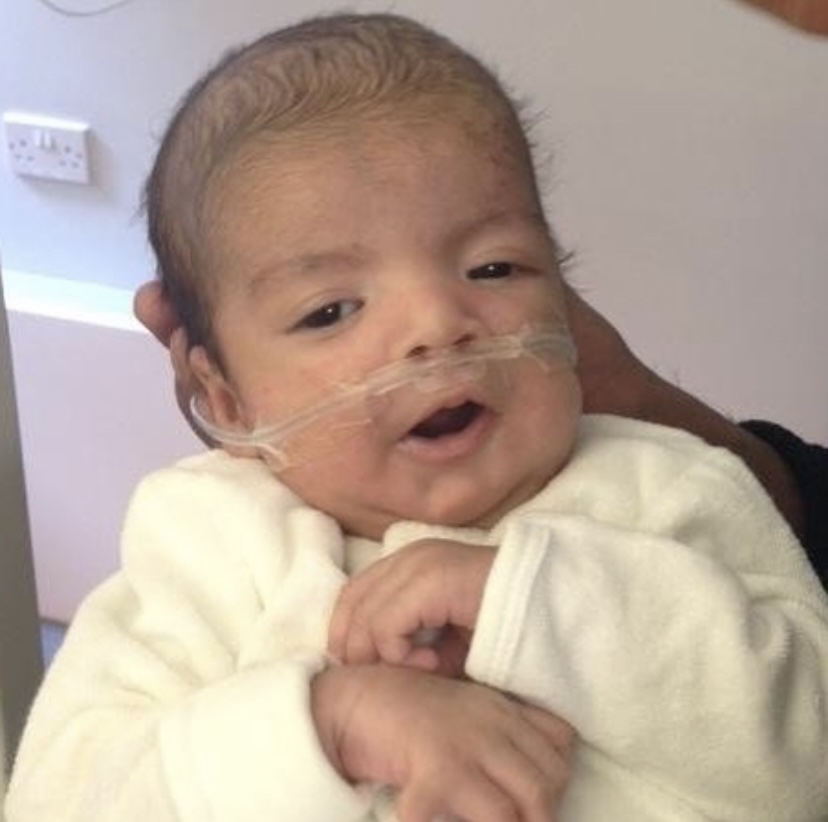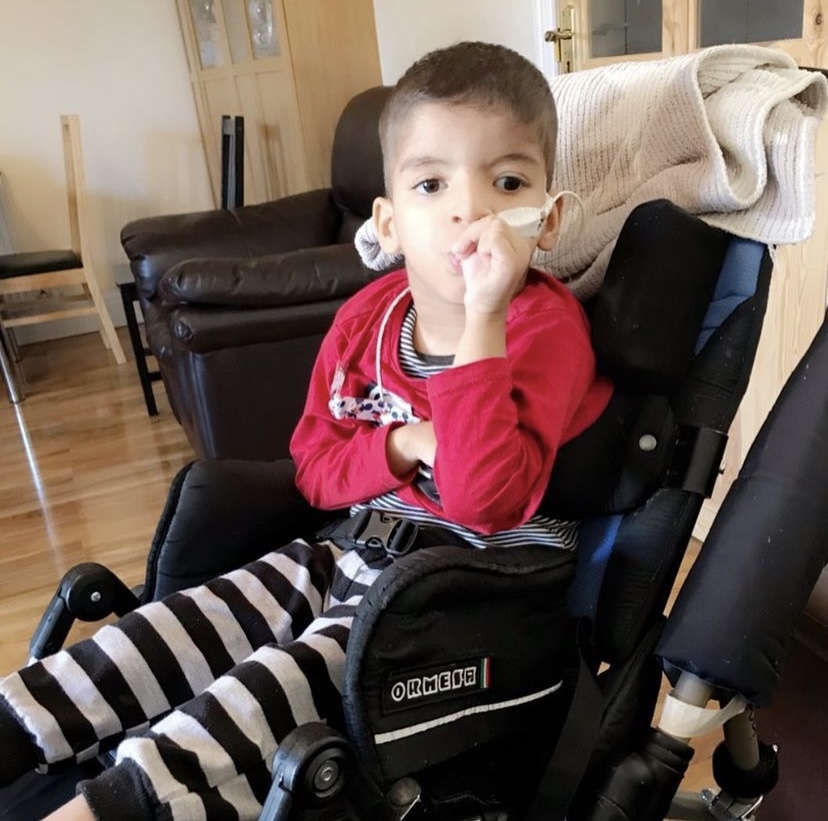‘Disabled’ is a word which most people of the Pakistani community steer from acknowledging or accepting or even using. After I had Azaan, I was told many times by people of the Pakistani ethnicity that I have done something wrong in my past for Azaan to be born this way. And that I must seek forgiveness. I was always confused by this because surely that meant they thought Azaan was a form of punishment from Allah (God)? I was told to
‘Sit on the prayer mat and cry!’
But I didn’t feel like crying. The front doorbell would ring and I’d get told to take Azaan upstairs and I obliged.
Every time.
Until a few months down the line I thought, Why am i doing this? I’ve got nothing to be ashamed of, neither is Azaan someone I should pretend doesn’t exist. So what if he didn’t appear normal? So what if society talked about him? Or frowned at him, or stared? He’s my son. So I stopped taking my baby upstairs whenever the doorbell rang.

i remember when my grandmother died and a family friend came to offer her condolences.
‘So, what’s wrong with him then?’ she asked looking at my boy.
”Is there something wrong with him?’ I quizzed her, to which she went quiet.
I remember one day a family friend, who I used to spend quite a lot of time with, came down my parents house. Azaan was led on the sofa and her little girl ran over to him. She ushered her daughter away from him, as if Azaan had a contagious disease.
Things like this never upset me, I don’t think it did anyway. I’m cold hearted now, apparently. (Sshh, it’s all a front, the mask I wear is pretty good). But for real, I am not cold hearted, I am broken hearted.
It’s a shame some people are raising their children to distance themselves from their peers just because they seem different. As parents of children with special needs, we rather people ask about our children and take an interest. Not ignore us.
One time when I took Azaan and his brother Raihan to the Zoo. I remember in the gift shop a little girl approached Azaan and pointed at him, ‘What is that tube for?’. I smiled and explained how the tube going up his nose goes into his stomach to fed azaan because he finds it difficult to swallow. Her British white mother stood and listened and thanked me at the end. ‘No no, thank YOU’ I said to her. ‘Thank you for not telling your girl to mind her own business, or to ‘not be rude’. Thank you for showing her that being inquisitive and asking questions is the right thing to do’.

I would bundle up my little prince everyday and take him out to some form of therapy. We didn’t rest, Azaan and I, everyday we had something going on. Physiotherapy, vision therapy, occupational therapy, speech and language therapy, sense class to attend and we would have portage come once a week. I’d be told by someone born in Pakistan, ‘Whats the point of taking him, therapy wont change anything, it’s all a load of rubbish’. Yet I ignored it all and carried on. Because I knew that pursuing with therapy WILL help Azaan InshAllah, and one day it will click and azaan will master something. Whether it’s a grip of a fist, an eye movement, a smile…anything. And even if it didn’t help, at least I would know I tried and didn’t deprive my boy from the amazing opportunities available to him in this country.
The Pakistani society needs to wake up and realise children with disabilities need love and support just as much as the next child. Children flourish on love. Don’t get me wrong, there are so many Pakistani’s in my community who are amazing, they are so fond of Azaan and pray for him. But I know the majority of people from villages ‘back home’ in Pakistan see children with disabilities as a waste of space, an embarrassment and a punishment, so are hidden in the corner and left alone with no access to education or life. I’ve heard many stories.
So, I decided to wake the Pakistani community up a little. I made an instagram account solely in Azaans name to start blogging about his life living with Jouberts Syndrome and I started to write a memoir about my journey mothering a medical needs child. People in the Pakistani community, British or not, need to be made aware that children with special needs are worthy of interaction and love.
I was scared to share my story at first.
I was worried what my parents would think of me plastering my life all over socials. I wasn’t worried what the community would think, but more anxious about how my family would take it, because people of the Pakistani community do talk, they love to gossip and everyone knows everyone. I didn’t want them ‘reporting back’ to my family about it in a negative way.
But I made the step and did it. And yes I did get the ‘why is she showing the world her boy when he’s like this’ and ‘don’t put him out there, it’ll give him nazar ‘. I know the community were taken a back a little, stunned maybe. Because I’ve not come across anyone being boastful of their child with disabilities in the asian community before. But I’m proud. I am the proud mother of my son who is not the typical child.
My boy who doesn’t talk, or see or walk.
Sharing his story is the best decision I’ve made. I love receiving messages from other mothers and families within the asian community, in and outside of Bristol. Some talk about how they see their child through Azaan and it gives them hope. It makes them feel less lonely. To some, it has helped them to open up a little bit more about their experiences living through a similar journey.
Children with disabilities are NOT a punishment.
I want to share Azaan’s story to the world, including to those dark corners in Pakistan.


This is a beautiful piece ❤️ I can relate on so many levels.
Thank you!
You are such a inspiration for all of us specially Pakistani community .Remember that Allah chose their beloved people s for test . May Allah SwT give Azaan long and healthy life . Aameen
Ameen, thank you!